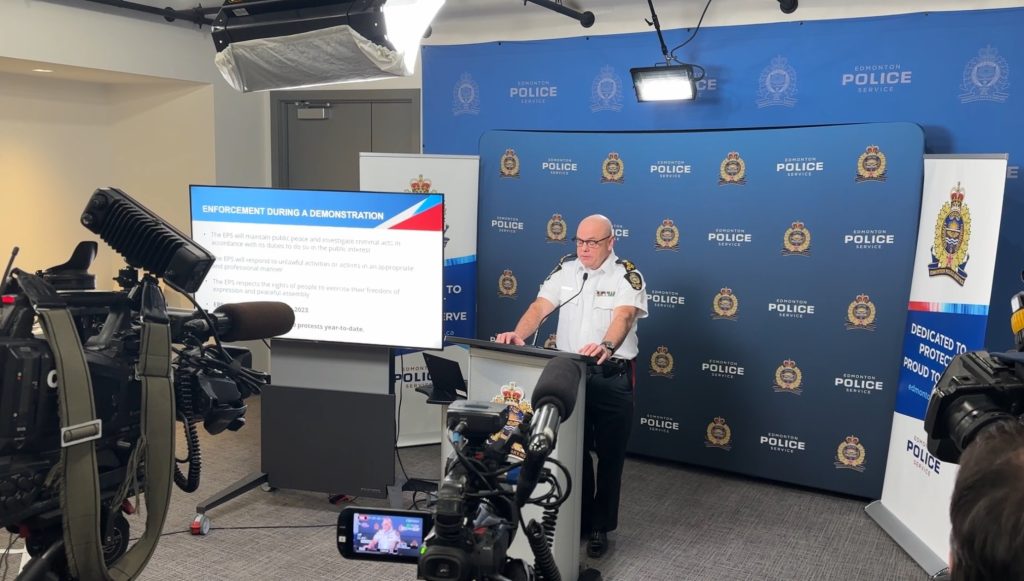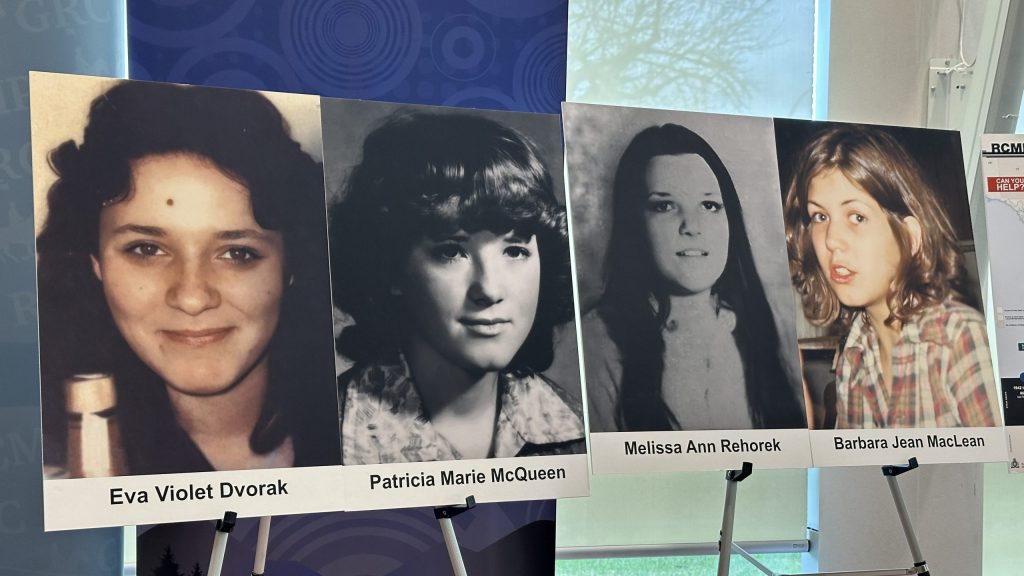What does Edmonton’s new zoning bylaw mean for you?
Posted October 24, 2023 10:03 am.
Last Updated October 24, 2023 10:05 am.
Edmonton has new rules for zoning, with more flexibility on what can be built.
The bylaw gets rid of single-home zoning, allowing for three-story tall townhouses, row houses, duplexes and in some cases small apartments in any residential area citywide starting in the new year.
City council voted in favour of the bylaw 11-2 Monday morning.
“We are the fastest growing municipality in Canada, and people are moving here, so where we accommodate them to live absolutely has an impact on our sustainability in every aspect,” said Edmonton Mayor Amarjeet Sohi.
“If we don’t create opportunities in existing neighbourhoods then they will live in the suburban communities, which is very unaffordable for the city to provide services, but it is also very unaffordable for people to live in those communities because transportation cost is huge.”
City council heard from hundreds of Edmontonians during a lengthy public hearing. Those in favour of the changes that modernize decade old policy say it will address the housing crisis. Those opposed say the city should have taken more time to improve the bylaw.

Kevin Taft with the Coalition for Better Infill was among those opposed to the bylaw.
“I feel like the city council has sidled right up to the development industry, voted for developers, against neighbourhoods, through a bylaw that has all kinds of problems,” said Taft. “Really done nothing for affordability, not much on sustainability, there are all sorts of issues that we felt the bylaw should have addressed that didn’t.
“People don’t elect councillors to hand the reins of the city over to developers, and that’s what’s happened here, and that’s a big problem.”
Taft calls the bylaw a “big set of concessions to developers” that will ultimately hurt neighbouroods. He says the Coalition for Better Infill didn’t want to see the bylaw completely thrown out, but simply improved.
“In our view, the bylaw needed one more year of work,” he said. “Most Edmontonians don’t understand the bylaw, they don’t understand what the impact is going to be. Those who looked at it saw all kinds of problems.”
WATCH: Residents speak out against Edmonton zoning bylaw proposal
Some councillors say while the new zoning is needed, it’s not perfect. They are already beginning to propose changes like limiting possible height if the neighbouring property is a bungalow. Those proposed changed will be debated in the coming months.
While most councillors voted in favour of the bylaw, Karen Principe and Jennifer Rice were opposed.
“We have people in favour and in opposition that wanted to see it extended a little bit more, get a little bit more community engagement,” said Principe of Ward tastawiyiniwak. “I was listening to what people had to say, and I myself thought that a lot of people brought some good ideas forward during the public hearing, so I thought why don’t we look into that and see if we can incorporate that into the zoning bylaw.”
Easier to get permit
The bylaw makes it easier to get a permit; it eliminates the need for builders to go through a regulatory approval process with the city.
“What this means for Edmontonians, it will be a bit easier to get a permit,” said Livia Balone, the director of zoning bylaw renewal with the City of Edmonton. “We will see some change in our neighbourhoods, it will be gradual change where we can see a mix of housing, row housing, semi-detached housing, some small apartments.
“We will also see some more mixed-use, where people can access the daily amenities they need. Maybe a doctor’s office, a library or a grocery store. Through this zoning bylaw, we are enabling a lot more sustainable communities, and a lot more opportunities for mixed use.”
Balone clarifies the changes won’t happen overnight.
“They can start putting in applications right away, but the bylaw doesn’t actually come into effect until Jan. 1, 2024,” she said. “We can start reviewing applications under the new bylaw, but just can’t issue the permit until January 1.”
Mayor Sohi feels ultimately the bylaw comes down to reacting to ongoing growth in suburban communities and the costly “urban sprawl.”
“We want to make sure we are building more compact communities, more resilient and sustainable communities, and this bylaw will allow us to do that,” he said. “Increase the density in existing neighborhoods, allow us to use the existing infrastructure and services that are already in place.”








